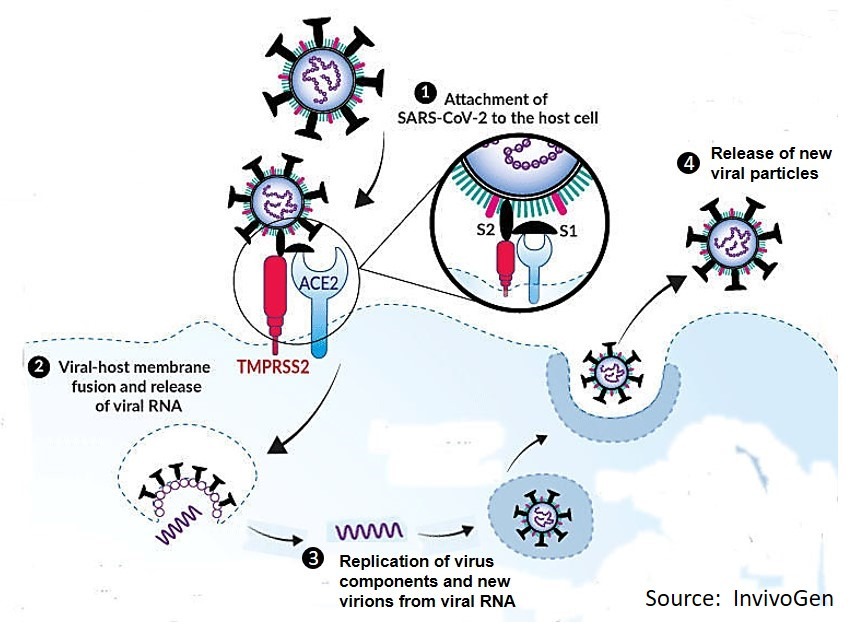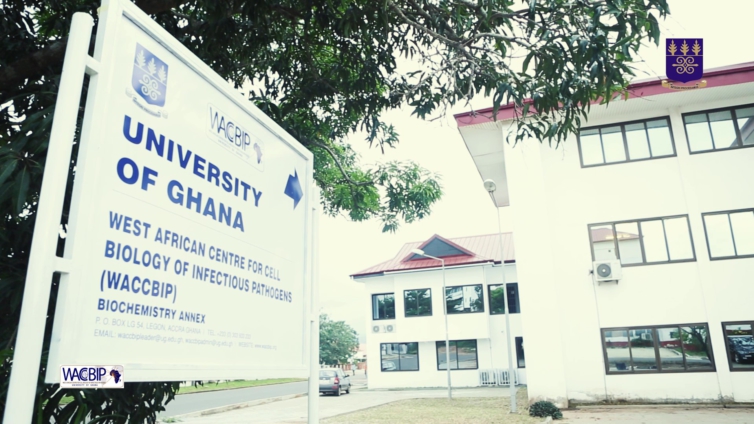Scientists from the West African Centre for Cell Biology of Infectious Pathogens (WACCBIP), University of Ghana, and their collaborators have published a landmark paper; titled “Tracking Genetic Diversity of SARS-CoV-2 Infections in Ghana from 2020-2021.
The paper was published on May 6, 2022, in the prestigious journal Nature Communications.
This study presents a detailed analysis of the genomic diversity of SARS-CoV-2 viruses that have caused COVID-19 morbidity and mortality in Ghana.
The work represents one of the most advanced genomic analyses of SARS-CoV-2 in sub-Saharan Africa and demonstrates the progress made in science capacity building in the region.
The study also shows the power of local collaborations as the work was done by an extensive network of public health institutions across Ghana.

The SARS-CoV-2 pandemic is one of the fastest evolving pandemics in recent history. The dynamics of localised epidemics need to be continuously tracked to inform government policies on vaccine coverage and enhanced transmission control approaches.
This manuscript reports on the analysis of 1123 SARS-CoV-2 whole genomes from patient isolates and presents the largest and most detailed genomic analysis of SARS-CoV-2 in Ghana since the pandemic began. However, it should be noted that these samples were analysed entirely before the emergence of Omicron (March 2020-September 2021).
Overall, the data describes the molecular evolution and spatio-temporal dynamics of the SARS-CoV-2 variants in Ghana.
The results indicate that local outbreaks were mainly driven by SARS-CoV-2 variants introduced into the country by travellers arriving from various countries across the world. In addition to Alpha, Delta variants which have dominated transmission globally at different times, we observed that the B.1.1.318 lineage was a significant contributor to community transmission in Ghana. Indeed, our data show that B.1.1.318 displaced Alpha and became the predominant lineage in Ghana until the emergence of Delta variants.
The high quality of our sequence data allowed us to perform a deep analysis of mutations which revealed that all the variants of concern circulating in Ghana harboured high-frequency mutations on the spike protein gene.

Thus, this publication serves as a valuable reference for continued monitoring of the evolution of SARS-CoV-2 as the pandemic progresses in Ghana and Africa at large.
Furthermore, this work represents a significant milestone in local capacity building for genome sequencing and analysis in sub-Saharan Africa as the entire work was done in Ghana and by local scientists.
We wish to convey our gratitude to all our institutional partners who collaborated with us to achieve this feat. We would also like to acknowledge our coalition of funders, who provided the much-needed funding and logistical support to make this happen. We would like to specially mention the Government of Ghana/Ghana Health Service, The Rockefeller Foundation, Institut de Recherche pour le Développement (IRD), African Research Universities Alliance (ARUA), UK National Institute of Health Research (NIHR), Wellcome Developing Excellence in Leadership Training and Science in Africa initiative (DELTAS) and the World Bank African Centres of Excellence (ACE) Impact.
Latest Stories
-
Devastating Ahodwo fire displaces over 200 slum dwellers
3 minutes -
Government recapitalizes NIB with GH₵1.4bn; ADB, CBG set for 2026
12 minutes -
Ghana’s Chef Abbys makes TIME’s 100 Most Influential Creators list
16 minutes -
Small Scale Miners Association Chair arrested for confronting anti-galamsey taskforce in Desiri Forest
17 minutes -
Stakeholders demand transparent laws to curb corruption and ease business burden
18 minutes -
Six arrested over alleged ritual murder at Mafi Adidome
20 minutes -
Party work must come first – Mustapha Gbande clarifies overlapping roles debate
24 minutes -
GACC marks AU Anti-Corruption Day 2025 with youth campaign in 40 districts
32 minutes -
Black Stars maintain 76th spot in latest FIFA ranking
32 minutes -
Minority questions logic behind Energy Minister’s nationwide power shutdown
34 minutes -
Suspect in the alleged killing of Immigration Officer gives conflicting accounts – Police
36 minutes -
Ablekuma North rerun: I’m contesting – NPP’s Akua Afriyie declares
36 minutes -
Natural gas supply to increase on Sunday to stabilise power – John Jinapor
42 minutes -
Ghana considers partnership with Portugal’s national airline for new flag carrier
45 minutes -
Prince David Osei blames Ablakwa for US visa policy changes
45 minutes

